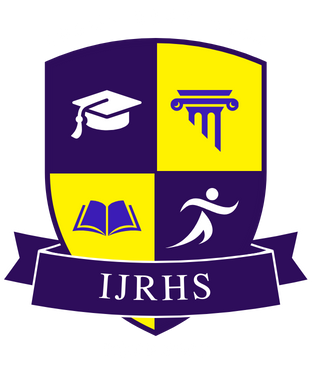![]()
Amrita Dutta
Independent Researcher
Assam, India
Abstract
Textbook translation within state education boards is an indispensable yet complex process that directly influences the quality and accessibility of educational materials in multilingual contexts. This study undertakes a comparative analysis of translation practices in the Maharashtra and Tamil Nadu state boards, focusing on science and social science textbooks for Grades 6–8. Employing a mixed-methods approach—comprising document analysis of translation guidelines and drafts, semi-structured interviews with curriculum developers, translators, and reviewers, and classroom observations in diverse urban and rural settings—we identify three interrelated domains of challenges: (1) linguistic equivalence, where achieving consistent and precise terminology across dialectal variations and evolving neologisms proved arduous; (2) cultural contextualization, which necessitates balancing fidelity to source content with local relevance, often through substitution of examples, illustrations, and idiomatic expressions; and (3) institutional capacity constraints, encompassing tight production timelines, limited review cycles, and uneven training opportunities for translators. Our findings reveal that Maharashtra’s board emphasizes rigorous lexical standardization—often at the cost of increased teacher burden for dialectal clarification—while Tamil Nadu’s board prioritizes cultural resonance through pilot-tested, locally adapted content, supported by additional review iterations. Both contexts suffer from inadequate pedagogical training for translators and bottlenecks in quality assurance. Building on these insights, we propose a best-practices framework featuring collaborative, state-wide glossaries co-developed by linguists and subject experts; structured pilot-testing phases with iterative feedback loops from teachers; and comprehensive capacity-building modules for translators and reviewers. These recommendations aim to enhance conceptual accuracy, cultural relevance, and institutional efficiency in textbook translation, thereby advancing equitable learning outcomes across linguistically diverse student populations.
Keywords
Textbook Translation, State Education Boards, Linguistic Equivalence, Cultural Contextualization, Curriculum Development
References
- Bassnett, S. (2013). Translation studies (4th ed.). Routledge.
- Cronin, M. (2012). Translation goes to war: Ethics, aesthetics and the transformations of translation. Routledge.
- Echeverri, A., Sánchez, L., & Marrero, A. (2015). Training needs of educational translators: A survey study. Journal of Educational Translation, 7(2), 45–62.
- Government of Maharashtra, Directorate of Secondary and Higher Secondary Education. (2021). Translation guidelines for regional textbooks. DSHSE Publications.
- Kumar, P., & Selvan, R. (2021). Pilot-testing textbooks: Lessons from Tamil Nadu. Curriculum Innovations, 15(2), 123–138.
- Kulkarni, P., & Iyer, S. (2019). Comparative analysis of textbook design frameworks across Indian states. International Journal of Curriculum Studies, 12(4), 221–238.
- Nida, E. A., & Taber, C. R. (1969). The theory and practice of translation. Brill.
- Pym, A. (2010). Exploring translation theories. Routledge.
- Rao, V. (2018). Cultural adaptation in Tamil textbook translations. South Asian Studies in Education, 10(1), 14–29.
- Sharma, R. (2017). Challenges in scientific terminology translation into Indian languages. Language and Technical Communication, 5(3), 98–113.
- Srivastava, M. (2020). Institutional bottlenecks in textbook translation: Evidence from Maharashtra. Educational Policy Review, 8(1), 65–81.
- Toury, G. (1995). Descriptive translation studies and beyond. John Benjamins.
- Venuti, L. (1995). The translator’s invisibility: A history of translation. Routledge.
- Deshpande, S., & Kulkarni, A. (2019). Dialectal variation and glossary development for Marathi science education. Indian Journal of Applied Linguistics, 3(2), 47–59.
- Menon, J. (2018). Teacher perspectives on translated textbooks in rural Maharashtra. Journal of Rural Education, 6(4), 88–102.
- Nair, S., & Krishnan, L. (2020). Translator training and quality assurance in Indian school textbooks. Education and Translation Quarterly, 2(1), 33–49.
- Singh, K., & Reddy, N. (2019). Comparative timeframe analysis of textbook production in India. Journal of Educational Administration, 11(4), 300–317.
